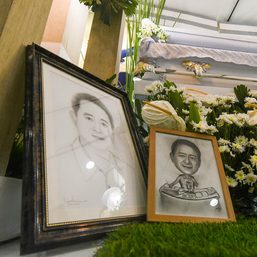SUMMARY
This is AI generated summarization, which may have errors. For context, always refer to the full article.
![[OPINION] An urgent appeal to amend the GCTA law](https://www.rappler.com/tachyon/2024/03/An-urgent-appeal-to-amend-the-GCTA-law.jpg)
The Good Conduct Time Allowance (GCTA) Law, enacted through Republic Act 10592 in 2013, aimed to promote the rehabilitation of Persons Deprived of Liberty (PDLs) by reducing their length of stay if they manifest good behavior while serving their prison sentence. It also was envisioned by Congress to be a mechanism to lessen prison congestion and to reduce the cost of running prisons.
Given the state of prison conditions in the Philippines in 2013, where it was characterized by prison crowding, long prison sentences even for low level drug users, lack of resources and personnel– and the ensuing reliance on the pangkat (gang) and mayores (inmate leadership) to keep the system afloat, this law was indeed envisioned to be revolutionary.
More than a decade after the passage of the law, we should have now reaped the benefits – more reformed PDLs, less crowding, less prison violence, and more efficient jail and prison systems.
Yet, these targeted outcomes have not yet been realized. Our prison system has, in fact, become more congested than ever. And running our prisons and jails have become costlier. This is made worse by the lingering effects of the War on Drugs implemented by the previous president, where 70 percent of the PDLs are serving time for drug offenses, many of whom are in for life imprisonment.
While there are many organizational and cultural factors that limited the full potential of the GCTA law, one simple yet glaring reason was how the law was worded. It lacked specificity.
The law says, “Art. 99. Who grants time allowances. – Whenever lawfully justified, the Director of the Bureau of Corrections, the Chief of the Bureau of Jail Management and Penology and/or the Warden of a provincial, district, municipal or city jail shall grant allowance for good conduct.”
The law did not include Prison Superintendents of the seven prison facilities of the Bureau of Corrections, including the biggest mega prison complex in the world, the New Bilibid Prison. This is a very unfortunate omission considering that the GCTA law is specially designed for convicted prisoners. While convicted prisoners can avail of the GCTA, it will be only through the Director General of the Bureau of Corrections, which at the current situation of having 50,000 PDLs nationwide, becomes an overwhelming task for the office.
Additionally, while Wardens of the BJMP jails, like municipal jails with inmates of less than 100, and where the Warden has a rank of a Senior Jail Officer 1 (SJO1) who is a sergeant, can grant GCTA credits, the Superintendent in the New Bilibid Prisons, with a PDL population of almost 30,000 and with a rank of at least a colonel, CANNOT grant a GCTA.
The lack of power to grant GCTA among the Prison Superintendents has delayed the granting of GCTA to truly deserving PDLs. It has affected and continues to affect 50,000 PDLs nationwide.
Interviews with legislative staff who crafted this law said that this was due to apprehensions that BuCor officials may abuse their authority. In 2013, the BuCor was plagued with issues of drug dealing, gang violence and contraband proliferation and Congress limited the granting of GCTA to the BuCor Director General. Indeed, in 2019, the “GCTA for sale” controversy erupted when former Calauan, Laguna Mayor Antonio Sanchez was released early. While the subsequent Congressional Inquiry did not find any anomalous actions by the BuCor officials, it nevertheless created an impression that BuCor personnel were easily corrupted by the power to grant early releases.
The current BuCor leadership is trying its very best to expedite the grant of the GCTA by forming multiple committees that assess the behavior of the PDLs. And the Director General had instituted many organizational and cultural reforms to streamline and legitimize the awarding of the GCTA. There are checks and balances introduced to make the granting of GCTA transparent and corrupt-free.
Still, the process would be expedited if the GCTA law is amended. It should be a simple tweak.
It must read, “Art. 99. Who grants time allowances. – Whenever lawfully justified, the Director of the Bureau of Corrections, the Chief of the Bureau of Jail Management and Penology and/or the SUPERINTENDENT OF THE PRISON AND PENAL FARMS, Warden of a provincial, district, municipal or city jail shall grant allowance for good conduct.”
If this amendment is made, I estimate that at least 1,000 behaving inmates will be released early by at least a year. This will translate to government savings of at least P25 million a year. This savings should be enough to construct new schools annually. – Rappler.com
Raymund E. Narag, PhD is an Associate Professor in Criminology and Criminal Justice at the School of Justice and Public Safety, Southern Illinois University, Carbondale.
Add a comment
How does this make you feel?


![[WATCH] Silent Tragedy: Epekto ng war on drugs sa mga bilangguan](https://www.rappler.com/tachyon/2024/06/silent-tragedy-tcard.jpg?resize=257%2C257&crop_strategy=attention)


There are no comments yet. Add your comment to start the conversation.